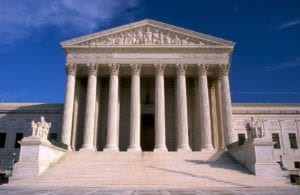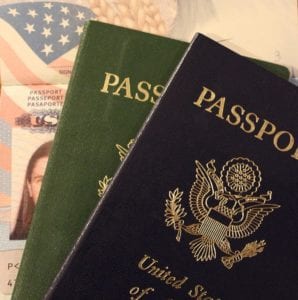What Are the Ramifications Now That Trump’s Travel Ban Stands?
It’s only mid-July, yet this summer already feels like a series of immigration policy changes. We’ve seen the Trump Administration ramp up its stance on zero tolerance for illegal immigration, make announcements on asylum policies and changes to the asylum system, and even take the drastic step to separate minor children from their parents or guardians along the United States’ southern border.
Amidst all of this news, the United States Supreme Court ruled on the Trump Administration’s implementation of travel restrictions on foreign nationals from certain countries. This decision by the Supreme Court could have dominated the news cycles for weeks or even a month, but with the onslaught of other political and immigration news, it has almost faded into the background.
Today, we want to take a look at what the Supreme Court’s decision means and what it doesn’t say. As immigration lawyers in California, the team at Greco Neyland also consider what this final decision means for individuals wanting to visit the United States.
What Did the Supreme Court Decide?

If you missed the news reports at the end of June, the Supreme Court decided that the federal government’s decision to ban visitors, immigrants, and permanent residency applications of foreign nationals from specific countries was constitutional. In practical terms, this means the Trump Administration’s travel ban will stand, for the time being, and individuals from North Korea, Syria, Libya, Chad, Yemen, Iran, and certain individuals from Venezuela and Somalia will not be admitted to the United States.
The written decision by the Supreme Court specified the basis for upholding the visitor and immigration restrictions against these countries. Among its reasoning, the Court said that it was well within the presidential authority to impose restrictions on immigration. It is assumed these restrictions must be non-discriminatory towards a specific religion, race, gender, or protected class, although the Court did not directly address this issue. Rather, the Supreme Court found that there was no mention or indication of religion or direct discrimination within the Trump Administration’s ban.
In the 5-4 decision, the Supreme Court stated that the immigration restriction in place was neutral in its language and thus far in its application, despite the fact that six of the eight countries impacted by the travel ban are majority Muslim. The Supreme Court further declined to take President Trump’s Tweets and other statements into account when making their decision. Instead, the Court looked solely at the text and application of the travel restriction.
What Is the Impact of This Supreme Court Decision?
For most people in the United States and beyond, the Supreme Court’s decision is limited. Only individuals from the eight named countries are directly impacted, and two of these countries are afforded some rights to visit the United States under greater scrutiny. However, the narrow immediate impact cannot discount what this decision might mean to an immigration lawyer in the future.

First, the Supreme Court’s deference to the executive branch of the federal government indicates a hands-off approach to immigration policy. Provided the current administration is purporting to act in the interest and safety of the country there is great deference to the power and authority of the president to make immigration decisions. The Supreme Court has afforded the executive branch a wide berth when it comes to enforcing and carrying out the Immigration Act of 1990.
This deference to the executive branch could lead to further action on the part of the Trump Administration to restrict immigration or impose policies without interference by the judicial or legislative branch. It could mean longer or greater restrictions on immigrants and visitors to the United States and possibly more overt steps to ban Muslims from entering the United States.
Second, by declining to look at the Tweets and statements of the president, the Court made a decision that these statements weren’t indicative of the purpose and intent of the statute. This determination by the Supreme Court contradicts many immigration lawyers and the ACLU, who concluded that the President’s messaging at speaking engagements and over Twitter were influential in determining the intention of these travel restrictions. This affords the President more latitude to separate his Twitter presence and speaking engagements from the executive policy.
What Happens Next?

The disagreement over the Trump Administration’s travel ban returns to the political sphere. Democrats, Republicans, the ACLU, immigration lawyers, and other individuals will continue to argue about the justifications of the travel ban and the intended impact of the restrictions. Likely, the national conversation over these restrictions is far from over and there is a good chance further restrictions are imposed in the future.
These continual changes to immigration policy and the imposition of various restrictions mean there is more need than ever for good immigration lawyers in California, New York, and elsewhere in the United States. If you are facing a tough immigration situation or need advice on travel to the United States, contact us at Greco Neyland. You can reach us 24/7 at (213) 295-3500.
What Are the Ramifications Now That Trump’s Travel Ban Stands?
It’s only mid-July, yet this summer already feels like a series of immigration policy changes. We’ve seen the Trump Administration ramp up its stance on zero tolerance for illegal immigration, make announcements on asylum policies and changes to the asylum system, and even take the drastic step to separate minor children from their parents or guardians along the United States’ southern border.
Amidst all of this news, the United States Supreme Court ruled on the Trump Administration’s implementation of travel restrictions on foreign nationals from certain countries. This decision by the Supreme Court could have dominated the news cycles for weeks or even a month, but with the onslaught of other political and immigration news, it has almost faded into the background.
Today, we want to take a look at what the Supreme Court’s decision means and what it doesn’t say. As immigration lawyers in California, the team at Greco Neyland also consider what this final decision means for individuals wanting to visit the United States.
What Did the Supreme Court Decide?

If you missed the news reports at the end of June, the Supreme Court decided that the federal government’s decision to ban visitors, immigrants, and permanent residency applications of foreign nationals from specific countries was constitutional. In practical terms, this means the Trump Administration’s travel ban will stand, for the time being, and individuals from North Korea, Syria, Libya, Chad, Yemen, Iran, and certain individuals from Venezuela and Somalia will not be admitted to the United States.
The written decision by the Supreme Court specified the basis for upholding the visitor and immigration restrictions against these countries. Among its reasoning, the Court said that it was well within the presidential authority to impose restrictions on immigration. It is assumed these restrictions must be non-discriminatory towards a specific religion, race, gender, or protected class, although the Court did not directly address this issue. Rather, the Supreme Court found that there was no mention or indication of religion or direct discrimination within the Trump Administration’s ban.
In the 5-4 decision, the Supreme Court stated that the immigration restriction in place was neutral in its language and thus far in its application, despite the fact that six of the eight countries impacted by the travel ban are majority Muslim. The Supreme Court further declined to take President Trump’s Tweets and other statements into account when making their decision. Instead, the Court looked solely at the text and application of the travel restriction.
What Is the Impact of This Supreme Court Decision?
For most people in the United States and beyond, the Supreme Court’s decision is limited. Only individuals from the eight named countries are directly impacted, and two of these countries are afforded some rights to visit the United States under greater scrutiny. However, the narrow immediate impact cannot discount what this decision might mean to an immigration lawyer in the future.

First, the Supreme Court’s deference to the executive branch of the federal government indicates a hands-off approach to immigration policy. Provided the current administration is purporting to act in the interest and safety of the country there is great deference to the power and authority of the president to make immigration decisions. The Supreme Court has afforded the executive branch a wide berth when it comes to enforcing and carrying out the Immigration Act of 1990.
This deference to the executive branch could lead to further action on the part of the Trump Administration to restrict immigration or impose policies without interference by the judicial or legislative branch. It could mean longer or greater restrictions on immigrants and visitors to the United States and possibly more overt steps to ban Muslims from entering the United States.
Second, by declining to look at the Tweets and statements of the president, the Court made a decision that these statements weren’t indicative of the purpose and intent of the statute. This determination by the Supreme Court contradicts many immigration lawyers and the ACLU, who concluded that the President’s messaging at speaking engagements and over Twitter were influential in determining the intention of these travel restrictions. This affords the President more latitude to separate his Twitter presence and speaking engagements from the executive policy.
What Happens Next?

The disagreement over the Trump Administration’s travel ban returns to the political sphere. Democrats, Republicans, the ACLU, immigration lawyers, and other individuals will continue to argue about the justifications of the travel ban and the intended impact of the restrictions. Likely, the national conversation over these restrictions is far from over and there is a good chance further restrictions are imposed in the future.
These continual changes to immigration policy and the imposition of various restrictions mean there is more need than ever for good immigration lawyers in California, New York, and elsewhere in the United States. If you are facing a tough immigration situation or need advice on travel to the United States, contact us at Greco Neyland. You can reach us 24/7 at (213) 295-3500.
free case evaluation
Results That Matter to You




